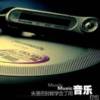上海高考英语听力试运转刚刚举行,测测你能得多少分?
2019年上海市普通高等学校招生统一文化考试英语听力在今天下午14:50-15:20举行了试运转,小布为大家录下听力音频。今年参加高考的童鞋们可以来试试能不能全部答对?远离考试的你也可对照下文测试下,看看自己的英语听力水平有没有退步哦。
小布提前祝愿各位考生取得好成绩哦!
时长18′21″
建议在WIFI环境下,结合下文收听
普通高等学校招生全国统一考试
上海英语卷(2019年6月)听力试运转试卷
I. Listening Comprehension
Section A
Directions: In Section A, you will hear ten short conversations between two speakers. At the end of each conversation, a question will be asked about what was said. The conversations and the questions will be spoken only once. After you hear a conversation and a question about it, read the four possible answers on your paper, and decide which one is the best answer to the question you have heard.
1. A. The seats there are uncomfortable.
B. There are more than enough seats.
C. It is popular with customers.
D. It provides customers with reading materials.
2. A. Spare his neighbor a key.
B. Get his key from his neighbor.
C. Study in his neighbor’s apartment.
D. Borrow some books from his neighbor.
3. A. Hand in their financial plan later.
B. Leave their financial plan unfinished.
C. Seek more information for their financial plan.
D. Finish their financial plan with what they have.
4. A. He failed in Dr. Parker’s test.
B. He didn’t know Dr. Parker at all.
C. Dr. Parker’s tests were not difficult.
D. The woman’s source of information is reliable.
5. A. The man should be recognized by his parents.
B. The man’s parents helped him get the scholarship.
C. The man should be praised for his accomplishment.
D. The man’s parents stopped boasting about his scholarship.
6. A. She didn’t work hard on it.
B. It wasn’t as good as expected.
C. Her claims in it were persuasive.
D. Her professor was satisfied with it.
7.A. Serve the dish as it is.
B. Taste the dish first.
C. Put some salt in the dish.
D. Ask mum about the dish.
8. A. She’ll call Julia next week.
B. She wonders if she’ll see Julia.
C. Julia doesn’t want others to see her.
D. Julia won’t be able to help the man.
9. A. It is a big deal.
B. It needs a new engine.
C. It doesn’t deserve repairing.
D. It is in a better condition than the woman’s.
10. A.He has a lot of experience as a skier.
B. He hasn’t ever been to central mountains.
C. He plans to go skiing during his spring break.
D. He doesn’t recommend going to central mountains.
Section B
Directions: In Section B, you will hear two passages and one longer conversation. After each passage or conversation, you will be asked several questions. The passages and the conversation will be read twice, but the questions will be spoken only once. When you hear a question, read the four possible answers on your paper, and decide which one is the best answer to the question you have heard.
Questions 11 through 13 are based on the following passage.
11. A. It’s important to set a proper aim.
B. What you get determines what you want.
C. It’s no use regretting what you haven’t got.
D. People are not aware of what they want.
12. A. Shopping.
B. Finding a location.
C. Inviting a friend.
D. Planning.
13. A. How smart they are.
B. What they hope to achieve.
C. How much they can earn.
D. What they can offer.
Questions 14 through 16 are based on the following passage.
14. A. It fails for most of the time.
B. It happens less frequently now.
C. Managers begin to doubt its feasibility.
D. Managers are trying to make it simpler.
15. A. When managers want to understand interrelated problems.
B. When managers hope to get a general idea of a system.
C. When managers are running a successful operation.
D. When managers have already grasped the whole thing.
16. A. They have seldom communicated with workers.
B. They have no access to complex systems.
C. They don’t know what they are ignorant of.
D. They don’t know clearly how to explain to managers.
Questions 17 through 20 are based on the following conversation.
17. A. A writer.
B. A journalist.
C. A story-teller.
D. A photographer.
18. A. They can judge whether the interviewee is lying.
B. They can keep in mind the importance of deadline.
C. They can research the sense of smell professionally.
D. They can use evidence to inform people of the missing parts of the story.
19. A. They might fail to be capable note-takers.
B. They might concentrate too much on details.
C. They might be lacking in the trick of the trade.
D. They might have no idea what can be asked later.
20. A. They are useful to promote the process of interviews.
B. They are powerful to prove the truth of news reports.
C. They are influential to challenge the content of recordings.
D. They are effective to assess the information journalists need to know.
普通高等学校招生全国统一考试
上海英语卷(2019年6月)听力试运转答案
C、B、D、C、C
B、A、B、D、D
A、D、D、A、B
C、B、A、D、B
资料:市教育考试院
编辑:张奥、张添翼
1、头条易读遵循行业规范,任何转载的稿件都会明确标注作者和来源;
2、本文内容来自“上海发布”微信公众号,文章版权归上海发布公众号所有。


























